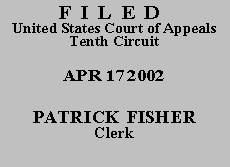

| THOMAS WOODBERRY,
Petitioner - Appellant, v. ROBERT HANNIGAN; ATTORNEY GENERAL OF THE STATE OF KANSAS, Respondents - Appellees. |
|
Thomas Woodberry, a Kansas inmate proceeding pro se, brought this petition for habeas corpus relief under 28 U.S.C. § 2254, contending he received ineffective assistance of trial and appellate counsel and the Kansas Department of Corrections violated his constitutional rights when it aggregated his consecutive sentences. Respondents briefed the aggregation issue, but did not refer to the ineffective assistance claims. The district court denied relief and a certificate of appealability (COA) without addressing the ineffective assistance claims.
Mr. Woodberry appealed and renewed his COA request. In a previous order, we construed Mr. Woodberry's habeas filings liberally, see Haines v. Kerner, 404 U.S. 519, 520-21 (1972) (per curiam), read them as asserting ineffective assistance claims, and granted COA solely on issues arising from these claims. The state then filed a brief on the issue and Mr. Woodberry responded. Upon consideration of the record and the parties' arguments, we now conclude Mr. Woodberry is not entitled to habeas relief on any of his claims.
Mr. Woodberry contends he received ineffective assistance of trial and appellate counsel in connection with his 1984 conviction. A habeas petitioner in state custody is required to exhaust available state-court remedies before obtaining federal habeas relief. 28 U.S.C. § 2254(b)(1)(A). A state prisoner "must give the state courts one full opportunity to resolve any constitutional issues by invoking one complete round of the State's established appellate review process." O'Sullivan v. Boerckel, 526 U.S. 838, 845 (1999). It is a requirement that the prisoner "present the state courts with the same claim he urges upon the federal courts." Picard v. Connor, 404 U.S. 270, 275 (1971). Mr. Woodberry failed to present his ineffective assistance claims to any Kansas state court. Contrary to his assertions, it is of no significance that he explained the facts underlying these claims in his motion for a new trial and on direct appeal. Moreover, Mr. Woodberry could have raised his ineffective assistance claim on post-conviction review. See Kan. Stat. Ann. § 60-1507; see also Lumley v. State, 34 P.3d 467 (Kan. Ct. App. 2001) (evaluating a post-conviction ineffective assistance claim). His failure to do so now leaves him without an available remedy in Kansas. See Kan. Stat. Ann. § 60-1507(c); Brooks v. State, 966 P.2d 686, 688 (Kan. App. 1998). His federal claim is therefore procedurally barred. 28 U.S.C. § 2254(b).
Mr. Woodberry also argues that his sentence is unconstitutional. The Kansas state courts have sentenced Mr. Woodberry in three different cases at three different times. In 1979, he received four concurrent terms of five to twenty years for aggravated robbery and aggravated battery. While paroled on the 1979 offenses, he was convicted of one count of aggravated battery and sentenced to a term of three to ten years. The relevant journal entry stated that this sentence was to be computed from October 11, 1984, to run consecutively to an anticipated parole revocation in the 1979 case. In 1993, Mr. Woodberry was convicted of conspiracy to commit aggravated battery and, after pleading guilty to the offense, he was sentenced to a one to five year term. All three sentences were aggregated so that, in effect, Mr. Woodberry was considered to be serving a nine to thirty-five year term, beginning with the sentencing date for his 1979 offenses. The convictions and sentences were upheld on appeal, and his request for post-conviction relief was denied.
Mr. Woodberry contends the trial court's specification of the October 11, 1984 computation date for his three to ten year sentence must mean that this sentence expired October 10, 1994. Therefore, he asserts, the aggregation of his sentences unfairly kept this sentence active, in violation of his entitlement to due process and equal protection of the laws and his right to be free from double jeopardy and cruel and unusual punishment.
The district court determined that petitioner's underlying premise is contrary to Kansas law. "Through 1982 amendments to K.S.A. 21-4608, the [Kansas] legislature mandated consecutive sentences as a harsher penalty for crimes committed by a defendant while on probation, parole, post-release supervision, or conditional release." Thomas v. Hannigan, 6 P.3d 933, 935 (Kan. Ct. App. 2000). The Kansas criminal sentencing scheme provides for the aggregation of consecutive indeterminate sentences. See Kan. Stat. Ann. § 21-4608(f)(4). Thus, Mr. Woodberry had no legitimate expectation that his 1984 sentence would terminate in 1994.
The district court correctly concluded that the aggregation of Mr. Woodberry's sentences violates no constitutional commands. It is well-established that courts may constitutionally impose consecutive sentences for completely distinct and separate offenses. See O'Neil v. Vermont, 144 U.S. 323, 331 (1892) ("[i]f [the defendant] has subjected himself to a severe penalty, it is simply because he committed a great many such offenses"). Mr. Woodberry provides no allegations demonstrating an equal protection violation, a lack of procedural or substantive due process, or an imposition of involuntary servitude. Because he has failed to make a substantial showing of the denial of a constitutional right, we deny COA on this issue. See 28 U.S.C. § 2253(c)(2).
As to the ineffective assistance of counsel claims, for which we granted a certificate of appealability, we AFFIRM the judgment of the district court denying relief. In all other respects, this appeal is DISMISSED pursuant to 28 U.S.C. § 2253(c). The mandate shall issue forthwith.
Entered for the Court
Circuit Judge
*. This order and judgment is not binding precedent, except under the doctrines of law of the case, res judicata, and collateral estoppel. The court generally disfavors the citation of orders and judgments; nevertheless, an order and judgment may be cited under the terms and conditions of 10th Cir. R. 36.3.